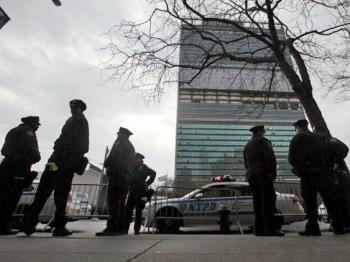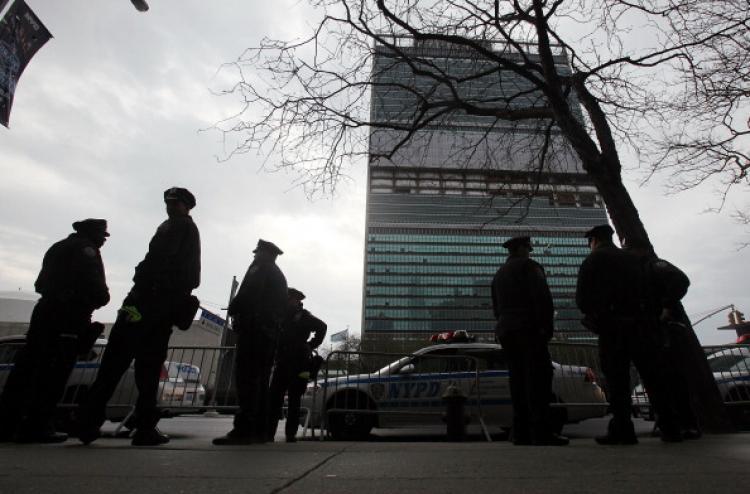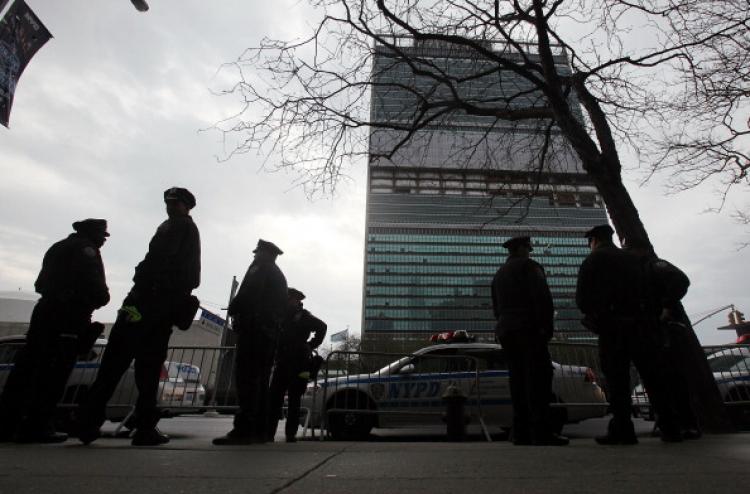Preventing Homegrown Islamic Radicalization
Brits and Americans exchange ideas and experiences on effective methods to combat homegrown terrorism.

New York Police Department officers stand outside United Nations headquarters during a dirty bomb exercise on April 5, 2011 in New York City. Officers from 150 law enforcement and first responder agencies are conducting the five-day, three-state exercise to evaluate responses to a hypothetical radiological bomb. Mario Tama/Getty Images
|Updated:





